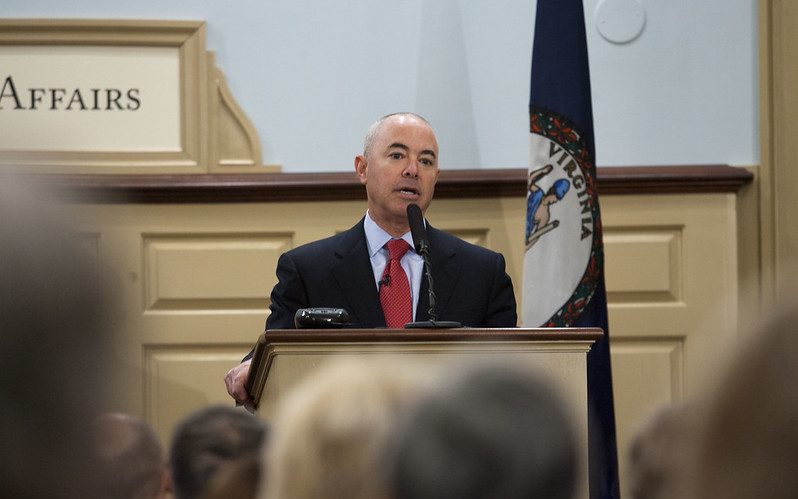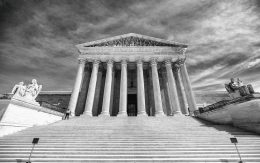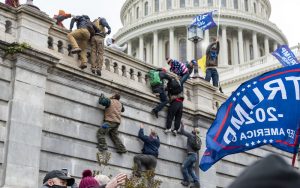Marvel Studios’ latest addition to the Marvel Cinematic Universe (MCU) is Ms. Marvel, the TV series which premiered on Disney+ on 08 June 2022.
The series showcases Kamala Khan, a Pakistani-American high school student who gains cosmic energy powers from a family heirloom, fights crime and becomes a superhero in her native home of Jersey City, NJ. The series makes a fine addition to the MCU, namely by including proper representation of Muslim-American and Pakistani-American culture and by having fantastic casting with Iman Vellani portraying the titular superheroine.
However, one area that has been often overlooked in the discourse surrounding this series has been the behavior of the U.S. Department of Damage Control (DODC), a rather lesser agency than S.H.I.E.L.D or S.W.O.R.D, yet one that has been around for many years within the background of the MCU (appearing in Spider-Man: Homecoming, Spider-Man: No Way Home, and the TV series Agents of S.H.I.E.L.D). With Ms. Marvel, however, we get a rather different view of the agency, one that has been hinted at before but never fully seen.
The Department of Damage Control
According to the Marvel Cinematic Universe Wiki, the DODC “is a federal executive department responsible for dealing with enhanced conflicts”, initially working as a subordinate agency of S.H.I.E.L.D to deal with infrastructure rebuilding in the aftermath of superhero incidents.
In 2012, the agency’s structure and mandate changed in the aftermath of the Battle of New York (the end battle from 2012’s The Avengers) when they became their own organization of the government and partnered with Stark Industries to “[begin] the collection and salvage of all alien materials present” while also cleaning up any infrastructure that “[fell] under Damage Control’s jurisdiction”.
Finally, at some point between 2012 and 2024, the DODC’s mandate again changed into “a federal law enforcement agency tasked with apprehending enhanced individuals along with seizing dangerous and alien artefacts”.
In Ms. Marvel, set in 2025, we initially see Agents Cleary and Deever examining social media footage of Khan saving Zoe Zimmer at AvengerCon, with Cleary stating they should locate the super and bring them in for questioning. In the second and most recent episode, DODC agents are interrogating the teenage Zimmer in regards to her experiences at AvengerCon, with the questioning quickly turning more accusatory and leading, with Cleary insinuating that Khan tried to kill Zimmer, then that Zimmer “did this for the likes” with her sister or friend. Upon realizing they are getting nowhere with the interrogation (and asking questions about the suspect’s possible non-white ethnicity), Cleary suggests they “do the tri-state sweep. Search every temple, community, center, and mosque”.
Later on in the episode, Agent Deever, alongside a DODC tactical squad, attempt to apprehend Khan, who is able to escape their grasp.
The DODC’s Actions in Ms. Marvel
The DODC’s actions are very, very interesting in Ms. Marvel. In some ways, the agents’ actions are equivalent to standard law enforcement interrogation, being coercive, deceptive, and manipulative in order to gain the information they need. However, at certain points, they can clearly be seen engaging in behavior that is unconstitutional and illegal, both under federal and state law.
The entire detention of Zimmer by DODC is not shown; the scene only starts when Cleary enters the room. Given Zimmer’s bored expression and her initial questions, it can be very easily reasoned she is unaware of why exactly she has been called in to the DODC Field Office (FO) in New York City. Extrapolating this further, it can most likely be assumed too that her parents do not know where she is.
From the first moments of the interrogation, it is clear that DODC has likely violated Zimmer’s rights and engaged in inappropriate behavior.
According to the U.S. Department of Justice’s (DOJ) Criminal Resource Manual, “From the moment that a juvenile is detained, he or she is entitled to juvenile custody and notification of parents”. The DOJ’s Justice Manual, the essential manual for U.S. Attorneys, “should insure that the law enforcement officers in their judicial district are made aware of the notification requirements” and that arresting offices “notify the parents or custodian of the rights of the juvenile, and of the nature of the alleged offense”. The Federal Law Enforcement Training Center (FLETC), the main training center for various U.S. and international federal law enforcement agencies, has also clearly stated that “Once a juvenile is in custody, the arresting officer must make a good faith effort to notify the juvenile’s parents or guardian to tell them that the child has been taken into custody, what offense the child was accused of committing and the juvenile’s Miranda rights … A juvenile’s Miranda rights must be given in a language that the juvenile can understand. The confession must also be otherwise voluntary. If the juvenile requests an attorney or invokes his/her right to remain silent, the interrogation must stop immediately”.
While Zimmer is not being arrested, simply questioned, given her concerned expression and inquiring as to why she is present at the DODC offices, it can be reasoned she was not informed prior of why she was being brought in, nor were her parents. This is not the first time the DODC has questioned a minor without the consent or proper informing of a legal guardian or parent. In Spider-Man: No Way Home, Cleary interrogated Peter Parker, MJ, and Ned all without proper legal or parental representation, even continuing to ask MJ questions in spite of her request for legal representation.
From a legal standpoint, if the DODC were operating under the goal of bringing a case against Kamala (which is the goal of every law enforcement agency), they have seriously bungled the case already. While it is unknown if Zimmer was read her Miranda rights or waived them, certainly, the lack of presence of counsel or her legal guardians/parents for this interrogation makes things suspect. Even more suspect is the view that Zimmer’s parents were not notified as to her whereabouts, which a jury would look unfavorably upon if the case did, in fact, go to court.
The actions taken by the DODC here would undoubtedly be revealed in court and surely would tarnish whatever case being made by them, likely on the grounds that the DODC essentially kidnapped a minor, engaged in leading questions that could easily confuse a child, and made illogical jumps towards targeting traditionally Muslim areas.
What This Says About Homeland Security
Given how close the DODC seems to operate in style to the U.S. Department of Homeland Security (DHS – down to their very insignia), it can be reasoned that the agency is intended to be a version of DHS. That agency has, in the past five years and especially under the Trump administration, garnered immense scrutiny from the way in which they handled reports on domestic terrorism to internal sexual assault to immigration policy as a whole.
All too often, we have seen civil rights and human rights skirted in the name of national or homeland security in the United States. The Patriot Act, which was created in response to combat terrorism in the aftermath of the September 11th, 2001 terrorist attacks, is working to “strengthen U.S. measures to prevent, detect and prosecute international money laundering and financing of terrorism” and “enhance law enforcement investigatory tools”. The Patriot Act, even when introduced, was controversial mainly because it increased the ability and capacity of law enforcement and intelligence entities to surveil both U.S. citizens and foreigners through wiretaps and physical surveillance.
While the Patriot Act has expired, it is unknown if the Patriot Act remained in effect in the MCU. given the advent of superheroes and the unconstitutional Sokovian Accords, however, it is plausible that the Patriot Act would remain in effect. This would mean that the highly unethical, though legal, spying practices of surveilling mosques by the DODC could be legally valid.
However, the rest of the actions taken by the DODC surely are unethical at the least and illegal at the most. The procedures and legislation on interrogating minors are clear and should be followed as strictly as possible, yet the DODC has decided to disregard these rules completely. The reasoning for this is multiple; it could be the work of untrained and unethical or biased agents, but this could also be a department-wide kind of policy too.
This could easily be a larger critique of the DHS as they have an especially wide mandate, stretching from immigration control to disaster response to counterterrorism.
Like DHS, the DODC has engaged in various different tasks for the federal government, starting as a disaster response agency, to a joint private industry and federal entity intending to rebuild after disasters, to taking on a law enforcement mission on top of their rebuilding procedures to become purely a law enforcement agency in a span of only thirteen years. This would surely cause instability within the department as the agency would have shifting priorities, complete with becoming a quasi-private industry venture before shifting entirely to a law enforcement endeavor, meaning that agents would have to be gained from other areas or standards would need to be lowered.
Conclusion
Much like how the Border Patrol has twice lowered their standards to gain more applicants and DHS as a whole saw major trouble in uniting various different entities under one umbrella organization in the early 2000s, DODC has experienced the same issues seemingly. This speaks to a larger issue of law enforcement or federal agency maintaining either one or a series of priorities while also maintaining the necessary high standards for employment.
This constantly changing mandate will allow for instability within a department or an organization. It will allow for an agency to lower its standards in hiring adequate or effective personnel and can cause a crisis of identity. Furthermore, it can make civilian and internal oversight a problem. With the DODC, given they were a quasi-private/federal agency at one point, this likely caused friction with how internal investigations into fraud, waste, or abuse were done. Furthermore, it is highly likely the agents featured in the show come from the private industry or have minimal federal law enforcement experience, possibly coming from either the disaster/emergency response field or corporate investigations and security. Having an agency with lowered standards leads to these abuses and biased ways of thinking that can make for an ineffective homeland security policy.
With Ms. Marvel, though it is likely not the intent of the writers, a commentary on DHS, their structure, and federal law enforcement as a whole is offered. The series, when featuring the DODC, commentates on how organizational instability and a lack of a clear or chronologically consistent mandate can negatively affect an agency or department, rendering it incapable of properly carrying out its mission and harming the citizenry it is intended to protect and the law it is intended to uphold.








Be First to Comment